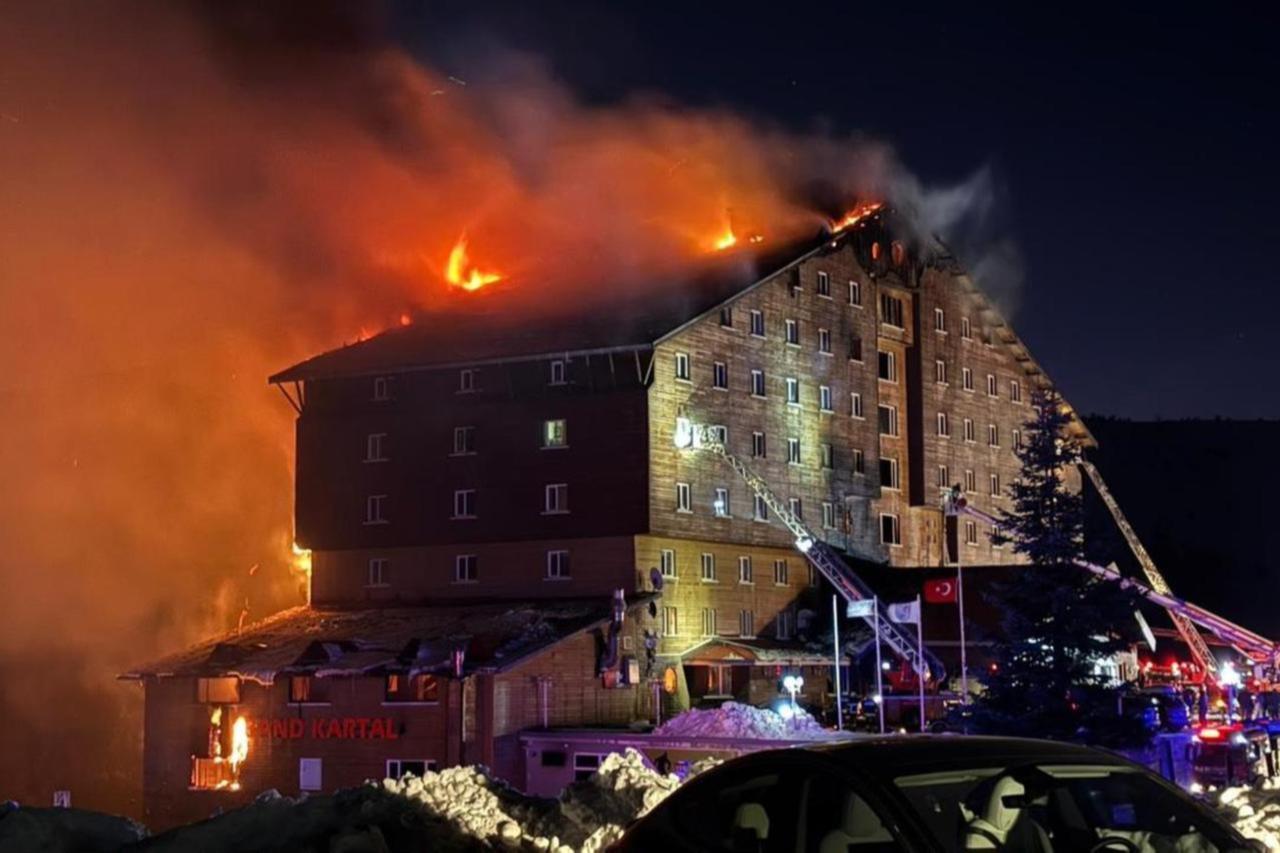
The Bolu 1st High Criminal Court delivered its verdict on Friday in the case of the Grand Kartal Hotel fire, which killed 78 people and injured 137 others in Türkiye’s Kartalkaya ski resort.
The court sentenced hotel owner Halit Ergul, his wife Emine Murtezaoglu Ergul, their daughters Elif Aras and Ceyda Hacibekiroglu, and seven other defendants — Emir Aras, Zeki Yilmaz, Kadir Ozdemir, Ahmet Demir, Bolu Deputy Mayor Sedat Gulener, Deputy Fire Chief Kenan Coskun and firefighter Irfan Acar — to aggravated life imprisonment for the deaths of 34 children.
All 11 defendants also received 44 separate prison terms of 24 years and 11 months each for the deaths of the remaining 44 victims. The court applied no sentence reductions.
The decision was announced in a specially prepared courtroom at Bolu Social Sciences High School due to the scale of the case.
As the ruling was read, Emine Murtezaoglu Ergul fell ill and an ambulance entered the hall. Families applauded the verdict inside the courtroom.
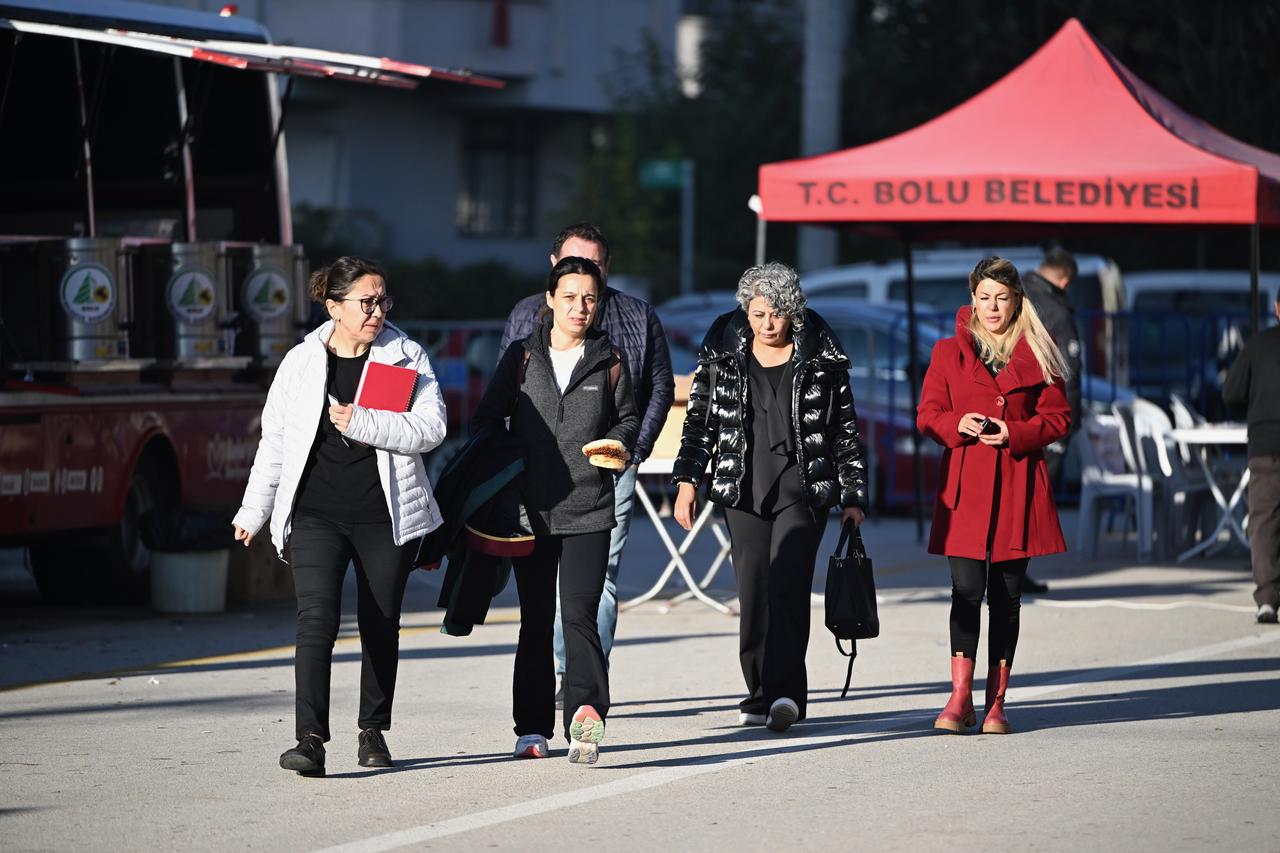
During the final hearing, the court allowed the defendants to present additional statements after the court considered applying "intentional killing by omission" and "injury aggravated by outcome".
Emine Murtezaoglu Ergul said, “I am very sad. I repeat my previous statements.”
Halit Ergul repeated earlier remarks and claimed he made no structural changes that increased the fire load.
He said he learned many shortcomings only after the indictment and argued that the LPG system had not been inspected. He said the Ministry of Culture and Tourism was responsible for oversight and added, “If I had foreseen the risk, I would have closed the hotel myself.”
In his expanded statement, Ergul also claimed that Aygaz was “the biggest factor” in the spread of the fire. He argued that Aygaz personnel at the lowest level were the only ones facing prosecution and said the hotel was regularly inspected. He repeated that the Ministry did not inform him of any deficiencies.
He added that he never allowed fireworks at another hotel he owned and said his family visited only for holidays. He again asked to be released pending trial.
Defense lawyers for Ergul, Murtezaoglu Ergul, Hacibekiroglu and Deputy Mayor Sedat Gulener requested acquittals and releases. The prosecutor asked the court to reject requests to expand the investigation.
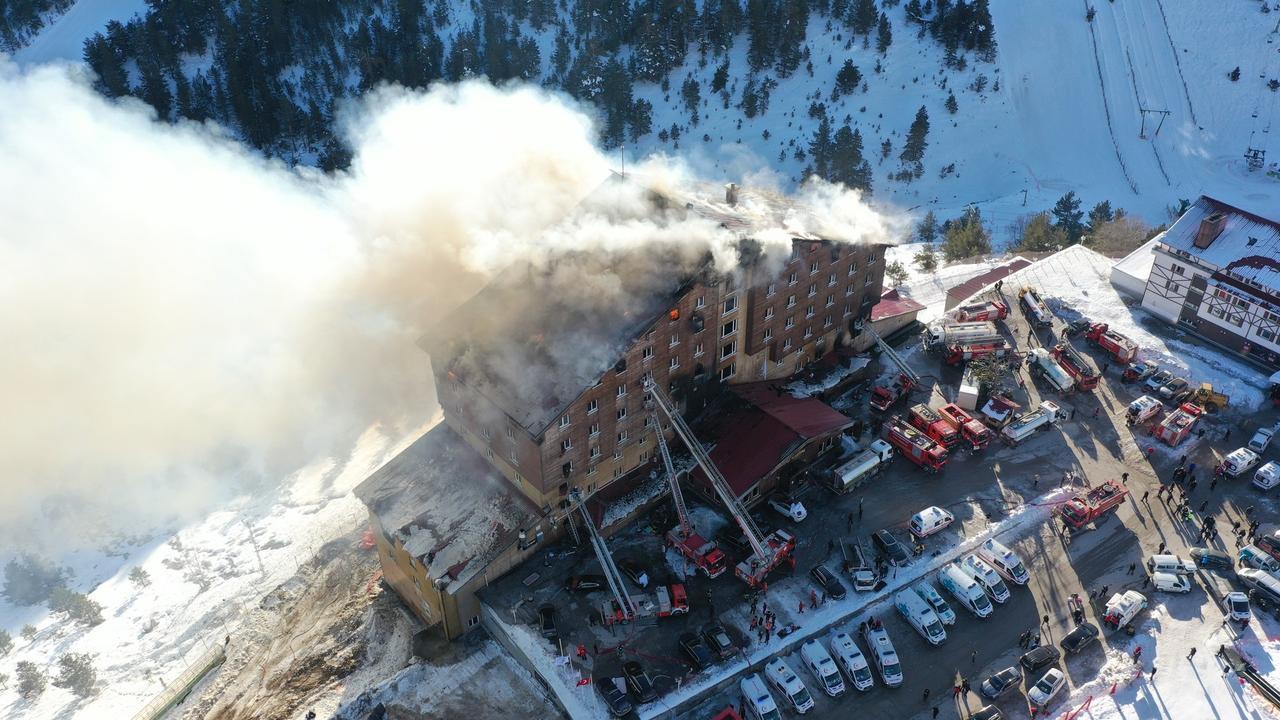
Relatives of the victims reacted sharply during the defendants’ statements, and several spoke publicly before the final ruling.
Zeynep Kotan, who lost her son Omur Kotan, opposed the prosecutor’s request to classify some charges as “conscious negligence.”
She said the change reduced the number of people facing “possible intent” from 13 to seven. She expressed frustration that senior hotel figures were among those shifted to lesser charges.
Kotan described the trauma families still carry. “We are still in the night of January 21. We are still in those corridors,” she said. She said many families have not been able to grieve properly. “Every day we walk through that hotel in our minds.”
Kotan recalled security footage that circulated across Türkiye showing members of the management leaving the building with their children.
She said:
“Elif Aras and her husband Emir Aras were seen dressing their children, putting on their masks and boots, and tiptoeing out. That escape image never leaves our eyes. While they ran, our loved ones were sleeping and could not wake up.”
She also alleged evidence tampering and pressure on hotel staff during the investigation.
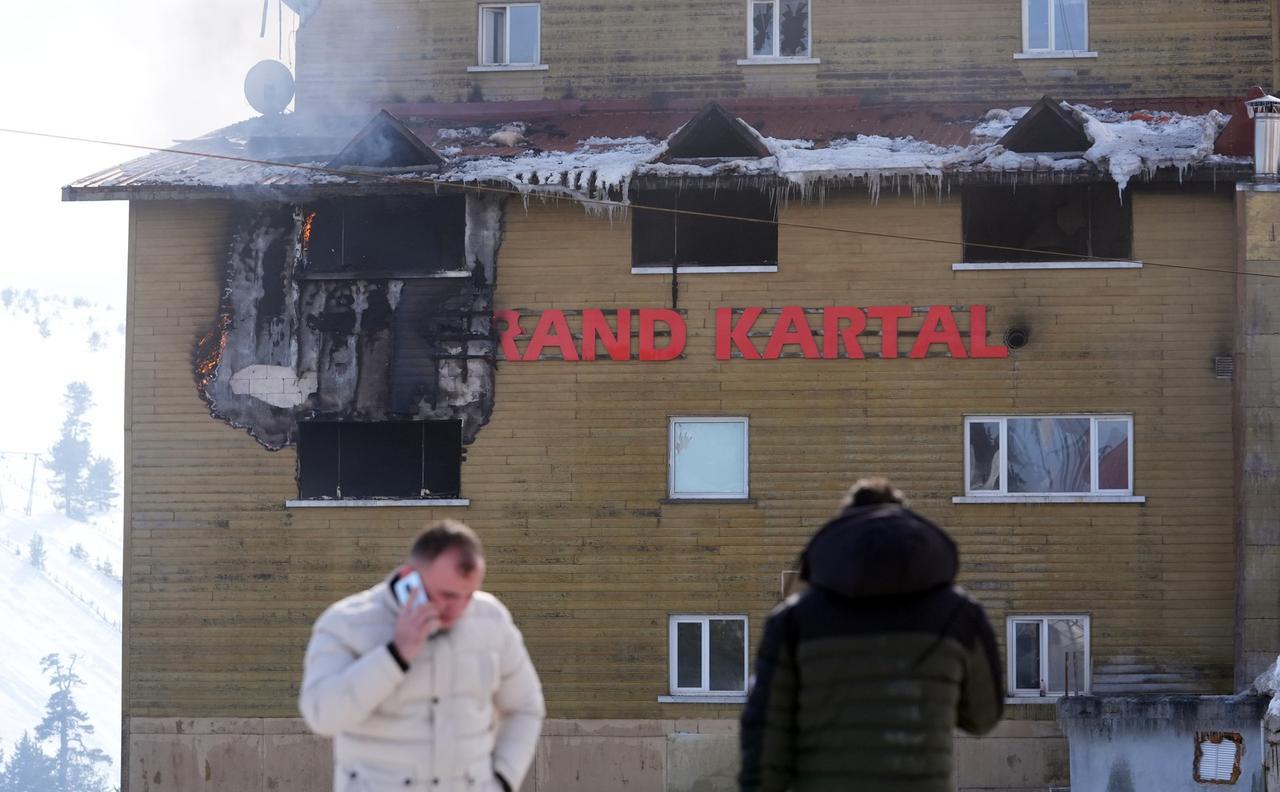
Ugrutan Dogan, who lost his son Mert Dogan, his daughter-in-law and two grandchildren, said he wanted accountability rather than revenge. He said, “The shift from possible intent to conscious negligence hurt us.” He called for all responsible parties to be tried under the same charge to set an example for Türkiye.
Sidika Ersin Dogan, who lost multiple family members, said what upset families the most was watching the defendants insist they did nothing wrong. She said:
“We all saw it. A mother buttoning her child’s coat as she leaves could at least shout ‘there is a fire.’ She could have woken the people in that corridor. If a person cannot show such a simple human reflex, it wounds us deeply.”
Victims’ families again called for ministry officials, municipal figures, and special administration authorities to face trial, arguing that responsibility extended beyond the hotel’s management.
The 9th Chamber President of the Council of State, Abdurrahman Gencbay, who lost his son Yigit Gencbay, said the ruling increased their hope in justice and that "mothers saw justice delivered today."
He noted that Danistay had approved the prosecution of Ministry of Tourism officials one month earlier but said no progress had been made by the prosecutor’s office. He added that nine bureaucrats who received investigation permits remained in their positions.
Bilsay Sarper Arslan, the nephew of writer Nedim Turkmen who died in the fire with his family, said the ruling brought relief to all relatives.
He described the outcome as a historic decision and said, “We faced a ruling that eased the hearts of all families. It was important enough to make people say there really are judges in Bolu. All 11 defendants were punished for possible intent to kill without any reductions.”
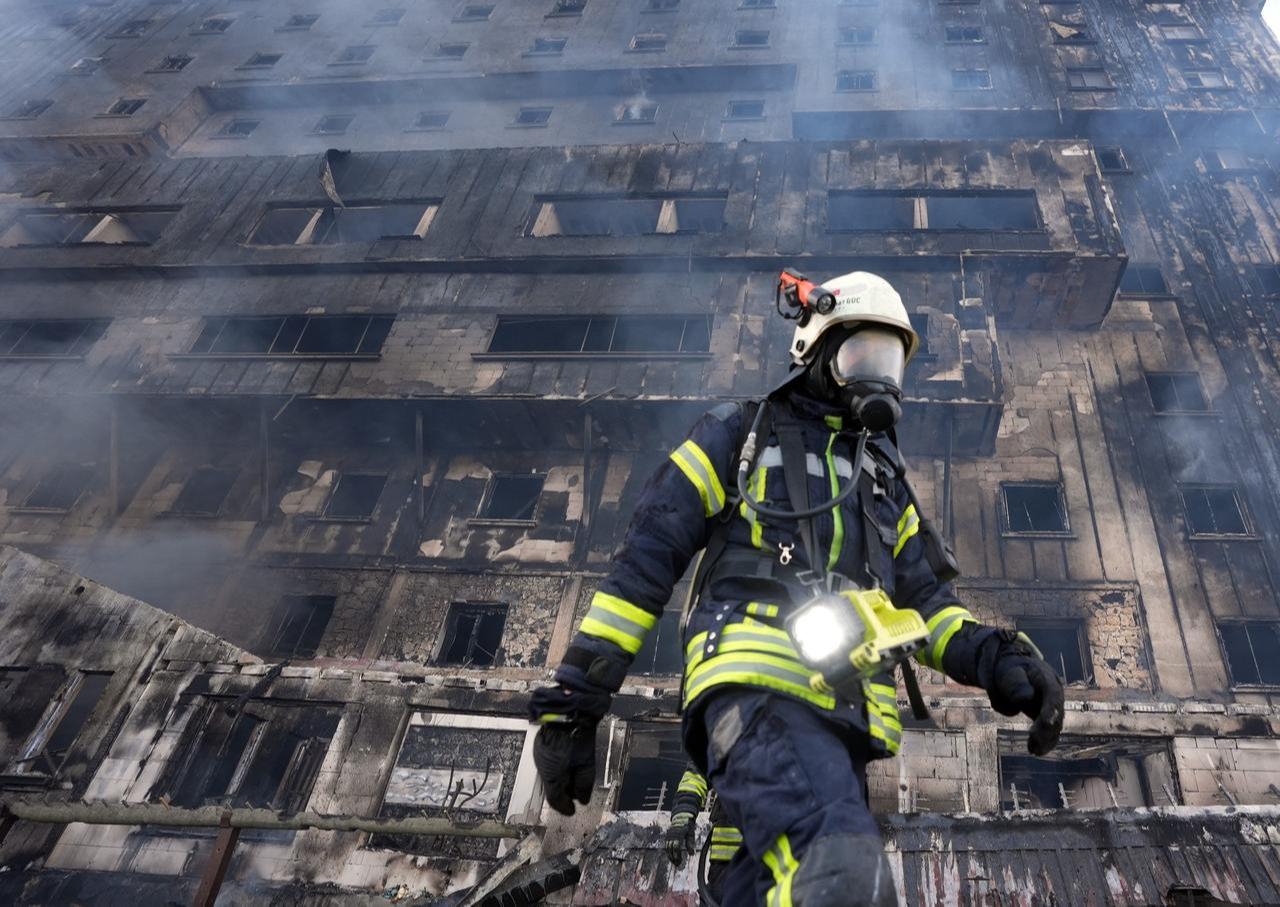
Attorney Yuksel Gultekin, who lost eight relatives, said before the verdict, “This is not a routine case. Seventy-eight lives were lost.”
He criticized the court’s refusal to show a 30-second video of Emine Murtezaoglu Ergul speaking about her work life, while allowing long statements from defendants.
Gultekin warned that if charges were reduced further or responsibility avoided, “there will be an outcry.” He said he would renew applications to the Bolu Chief Public Prosecutor’s Office regarding ministry officials.
He said he expected the court to deliver an outcome that reflected the scale of the loss and added that the case should set an example for the country.
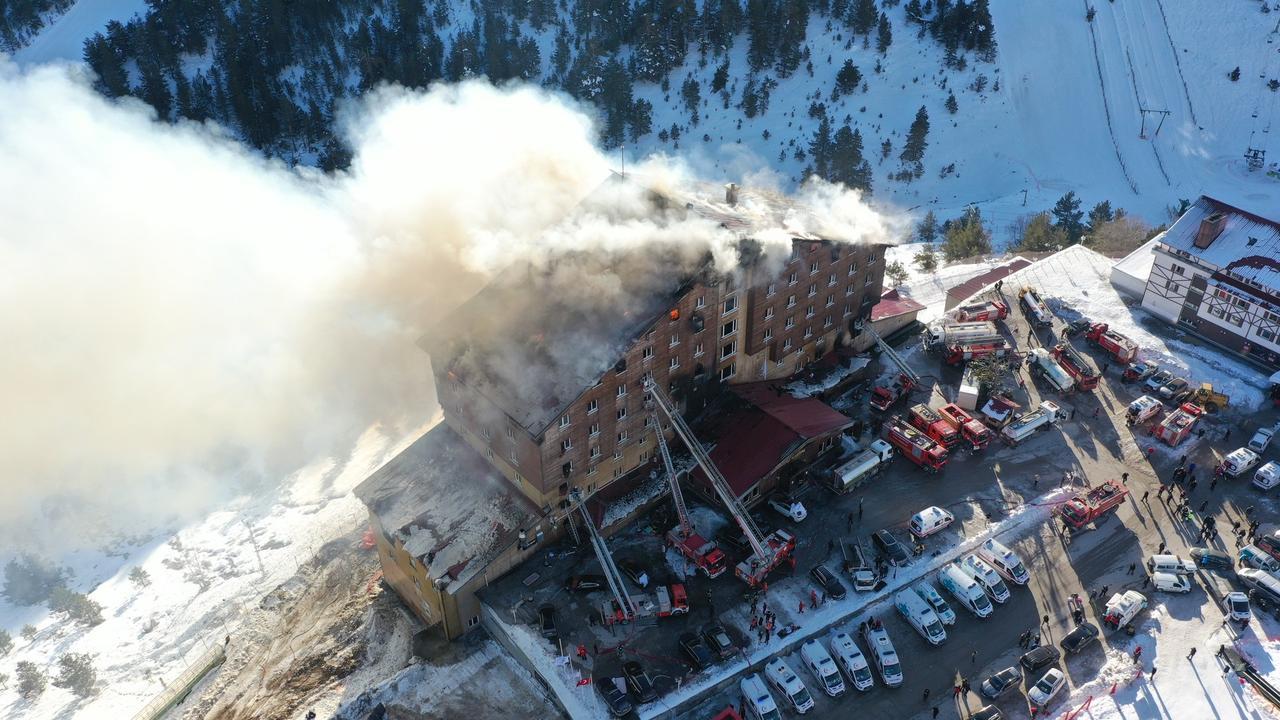
The fire broke out on Jan. 21 at the Grand Kartal Hotel, one of the main facilities of the Kartalkaya ski resort. It became Türkiye’s deadliest fire on record.
The indictment included 32 defendants, ranging from hotel owners and managers to municipal officials, technicians, safety specialists, and LPG workers.
Prosecutors sought up to 1,998 years for 11 key defendants on charges of “possible intentional killing” and “possible intentional injury.”
Twenty-one others faced up to 22 years and six months for “consciously causing multiple deaths and injuries through negligence.”
The trial took place in a converted gymnasium due to the scale of participation. Security forces closed nearby streets and installed recording systems. The verdict was delivered on the fourth day of hearings.
The court also ordered the arrest of two previously free Mudurnu Enerji Sanayi ve Ticaret officials, Ibrahim Polat and Ismail Karagoz.
According to Bolu Bar Association President Sinan Barut, sentences were issued at the upper limit, no good-behavior reductions were applied, detentions continue for all convicted defendants, two additional people were acquitted and released, and two others were newly taken into custody.
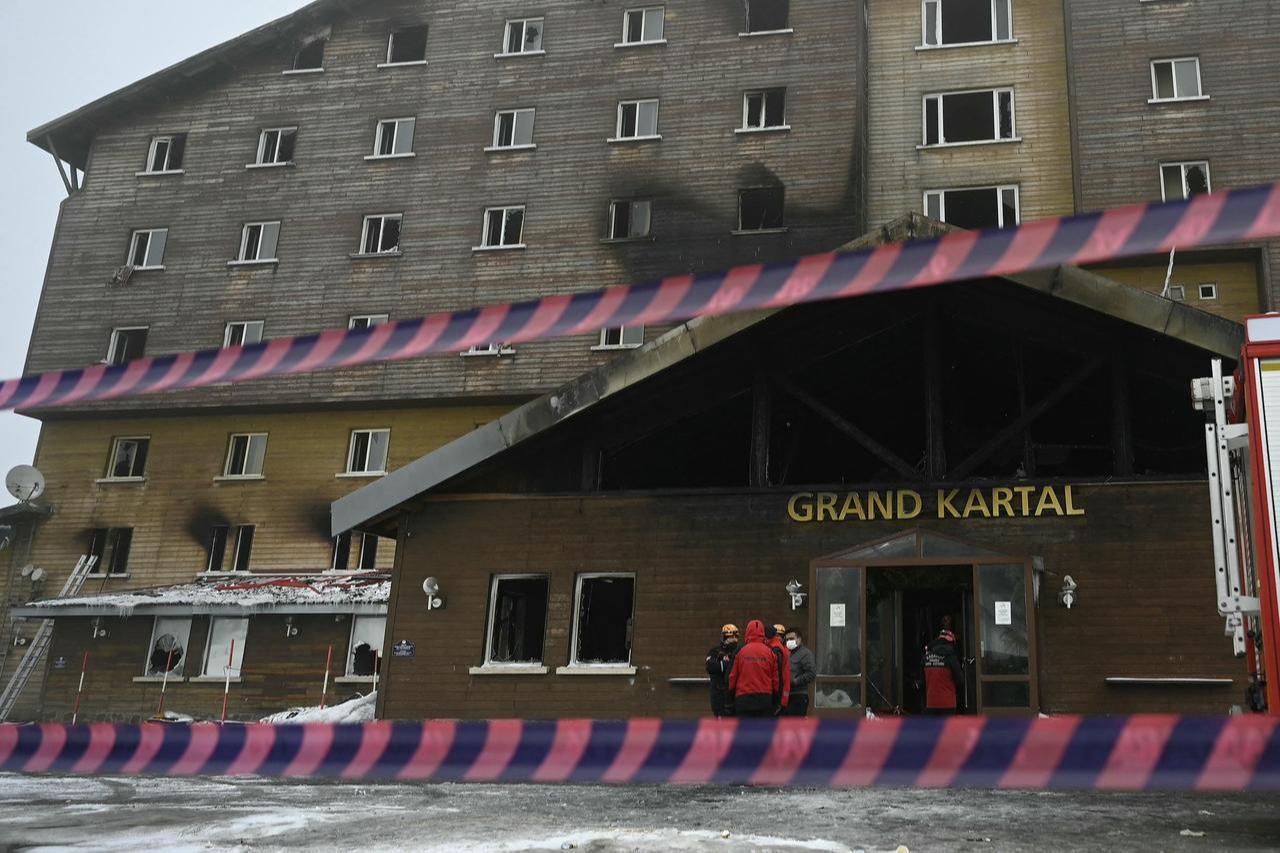
The tragedy has also intensified scrutiny of inspection and licensing systems.
Testimony in parliament earlier this year showed that nearly 8,000 tourism facilities had operated illegally in Türkiye. Deputy Minister Nadir Alpaslan said 6,200 of those businesses had been shut down but that enforcement was often slow due to local administrative delays.
After the Kartalkaya fire, authorities shut down an additional 1,800 facilities for fire safety violations and banned 6,200 from operating.
Alpaslan said serious negligence existed both before and during the fire and noted that tourism certificates did not guarantee technical compliance. Two legislative packages to improve oversight remain under review.
More than 300 people have died in Türkiye’s major structural fires since 1959.
Past disasters in Erzurum, Ankara, Istanbul, Besiktas, and Adana exposed repeated failures: blocked exits, wooden structures, missing safety systems, and limited enforcement.
The Kartalkaya fire now stands as the deadliest fire in Türkiye’s history and has renewed calls for stronger rules, clearer oversight, and consistent enforcement across all sectors.